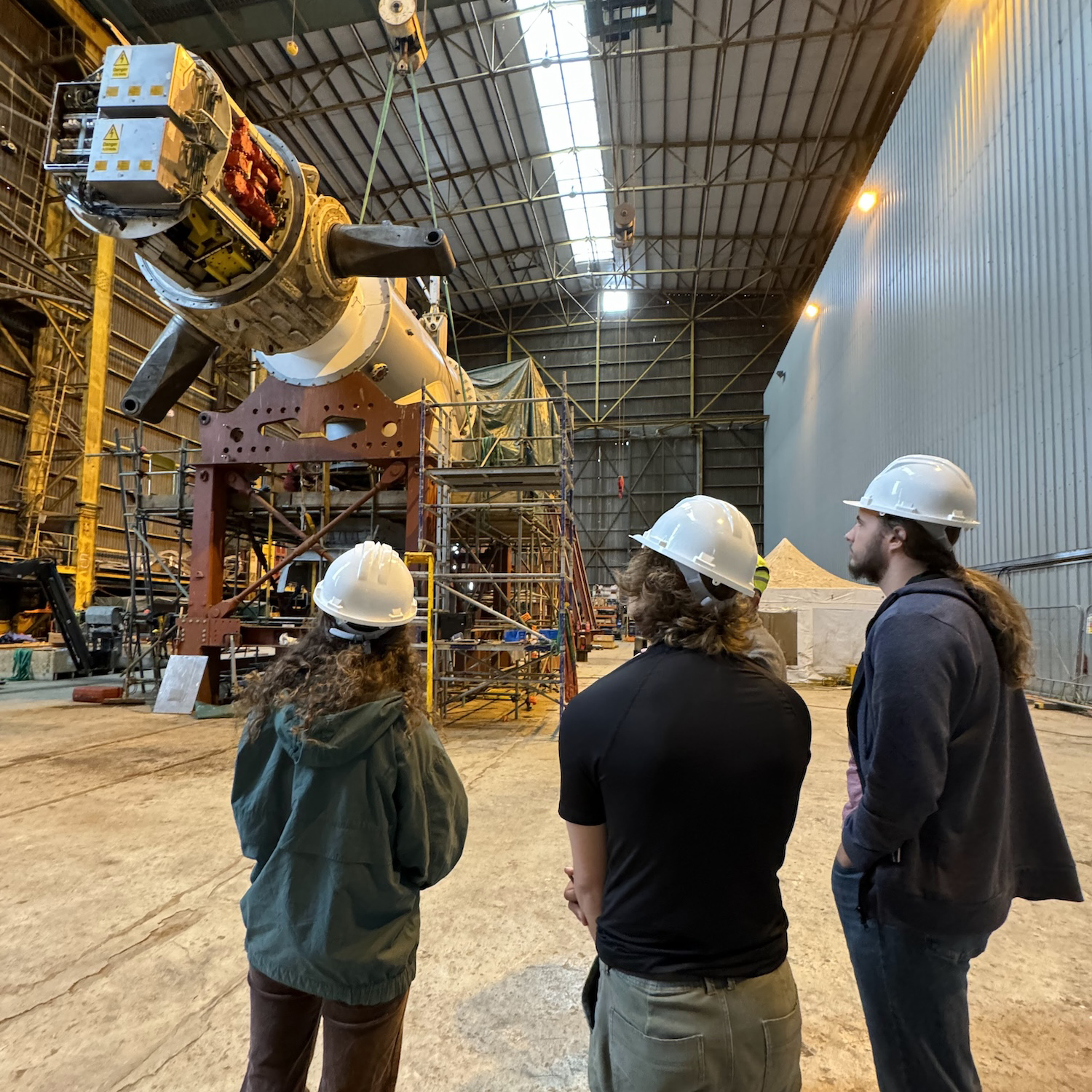Last month, four members of Gemstone’s Team COAST took a special research trip to Scotland, gaining important insights into tidal turbine technology. The team, whose name stands for “Cost-Effective, Optimized, and Applicable Sea Turbines,” is working to improve the viability and sustainability of tidal turbines by developing protective marine biofilms.
Tidal turbine research is about harnessing a clean, renewable, and predictable source of energy from ocean tides. Like solar and wind, tidal energy is a renewable resource that doesn’t deplete over time, but it is different in that it is highly predictable, following lunar patterns. Improving the efficiency and cost-effectiveness of tidal energy technologies could supply a significant percentage of future electricity needs while reducing reliance on fossil fuels.
Team COAST traveled to the MeyGen Tidal Energy Project site in the Pentland Firth in northern Scotland, a station built on one of the largest tidal ranges in the world. Their trip was funded by a grant secured by one of their committee members, Dr. Deb Niemeier, a professor of civil and environmental engineering, after their proposal defense last spring.
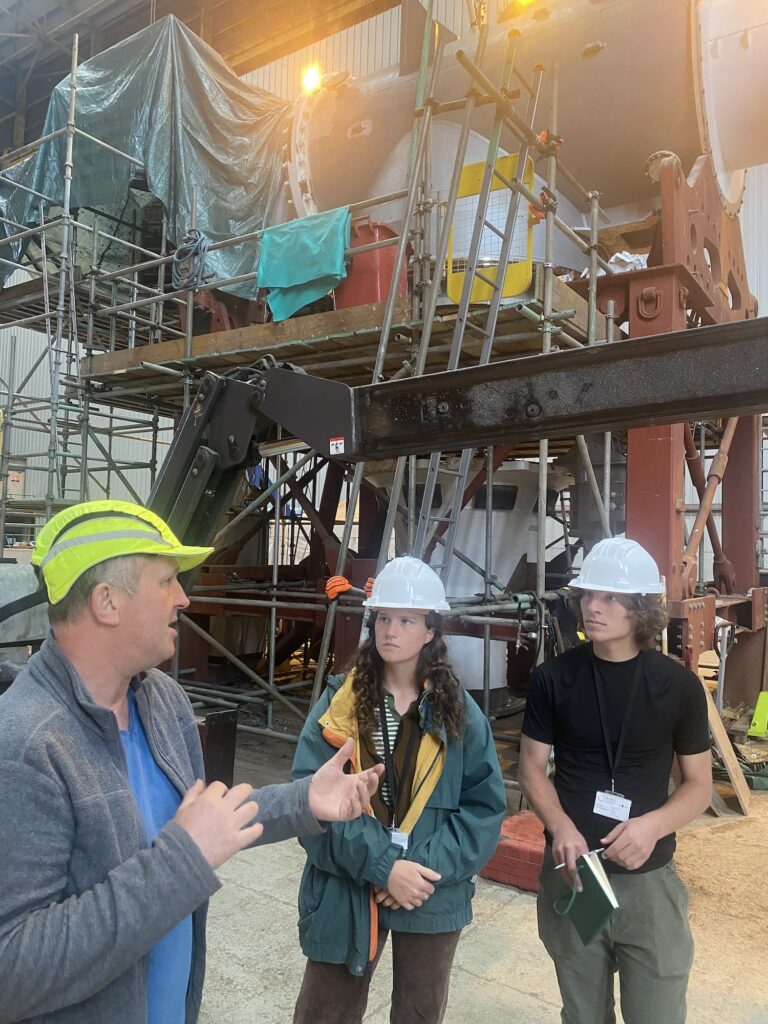
“Our program approaches proposal defenses as opportunities for committees to offer support, not criticism,” said Gemstone’s associate director Dr. Allison Lansverk. “As a student, you get access to your mentor’s and committee members’ networks, similar to a graduate student experience.”
Dr. Niemeier helped the team identify the MeyGen Tidal Energy Project when they learned that it had a turbine undergoing maintenance this summer. Usually, when turbines are in use, they are hidden underwater, so the team had the rare opportunity to examine one up close.
During their visit, the students toured the substation where energy is processed and collected water samples to analyze nutrient contents. This water sampling will help them refine the protective marine biofilms they are developing for their project. The biofilm is meant to mitigate the effects of biofouling, or the accumulation of microorganisms, algae, and other biological matter on ships, underwater pipes, and, in this case, turbines. Biofouling is said to increase weight and drag and accelerate corrosion on marine vessels and equipment. However, the team learned from MeyGen Tidal Turbine staff that biofouling is less of an issue than previously thought—or that it relates to a different set of issues.
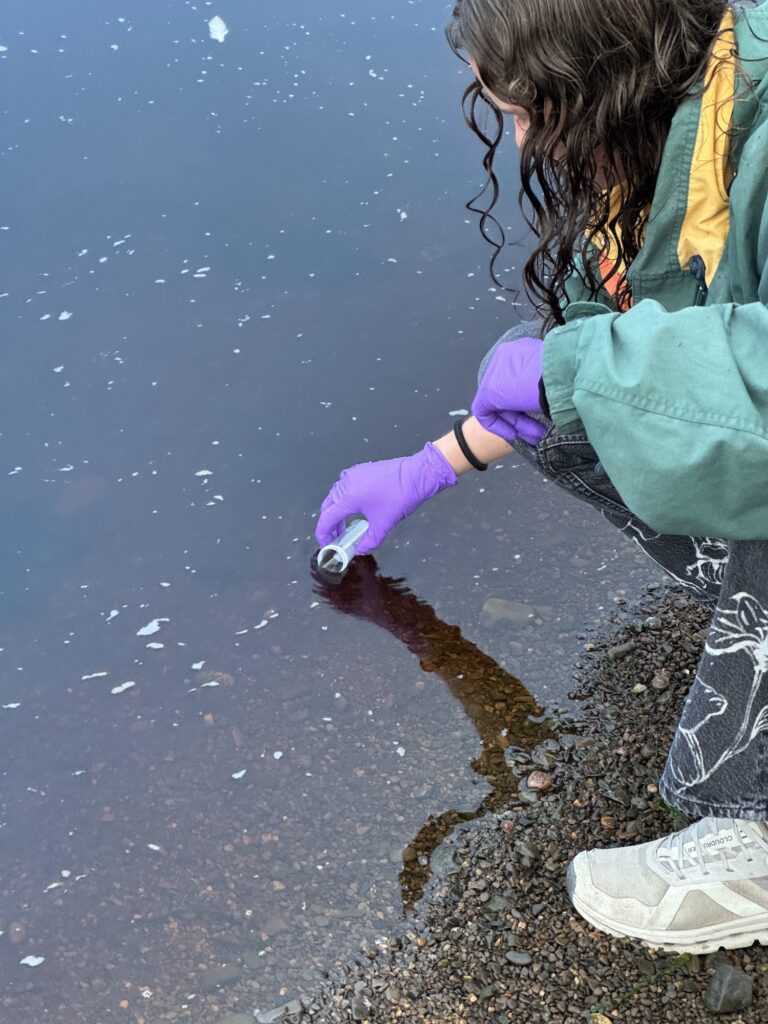
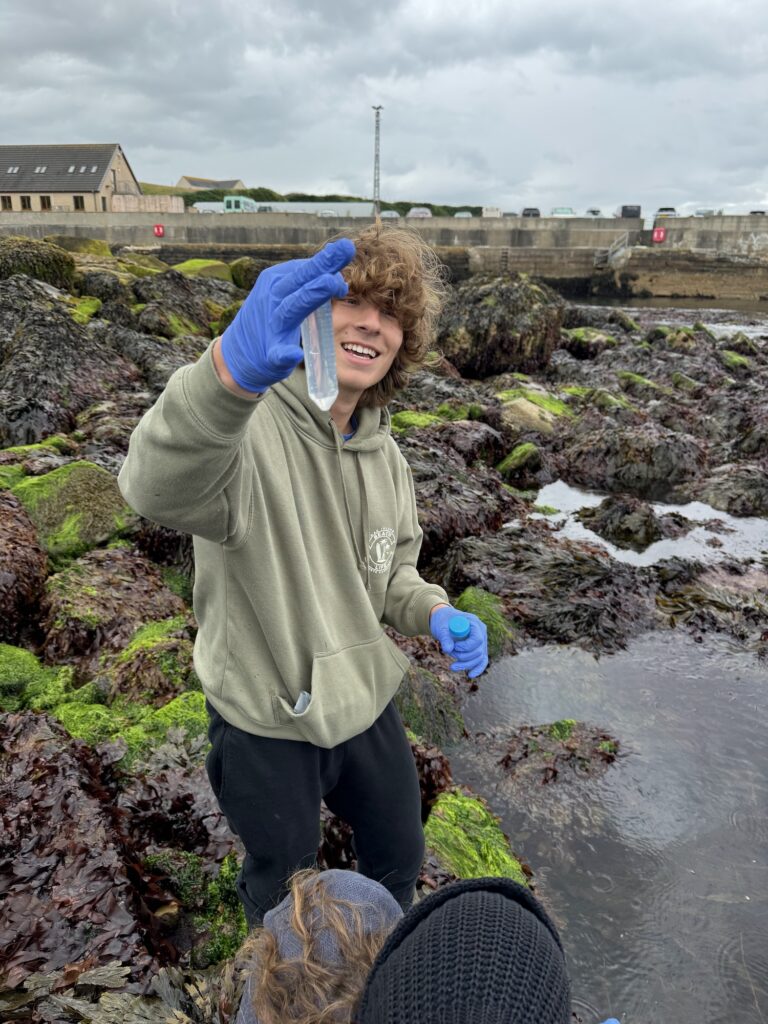
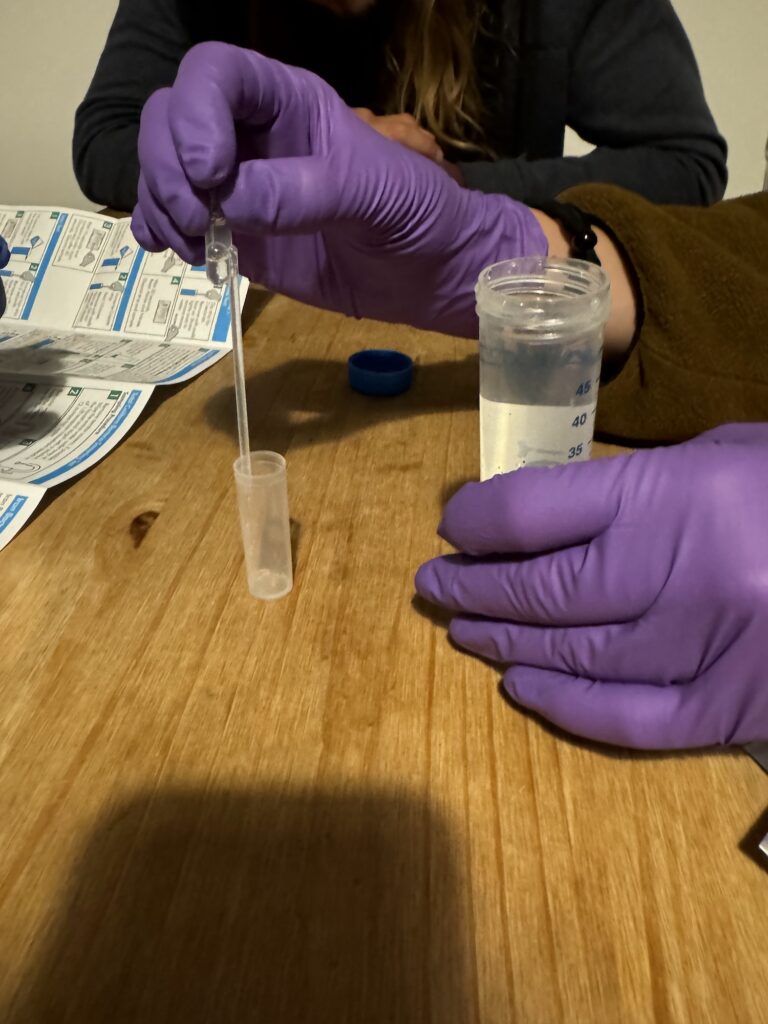
Team COAST collects water samples at the MeyGen Tidal Energy Project site in the Pentland Firth in northern Scotland.
“During this trip, we found that biofouling doesn’t have a huge effect on efficiency, as we thought before, but it is the maintenance that is expensive,” said Team COAST member Owen Lehrfeld, a junior mechanical engineering major. “Repainting is expensive, as is removing the seaweed and other growth.”
This insight has helped the team refine their research focus to develop a biofilm coating that could be self-repairing and more cost-effective to apply. They are now finalizing their methodology and will begin data collection this year.
Team COAST members are Anthony Bobok, Owen Lehrfeld, Neha Narayan, Harrison Offenberg, Amelia Roosen, Dahlia Shafiq, Stephen Snyder, and Sarah Weiss. Their faculty mentor is Dr. Birthe Kjellerup, a professor of civil and environmental engineering.
—
Learn more about the Gemstone program at gemstone.umd.edu and Team COAST at team-coast.weebly.com.

